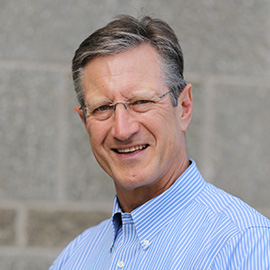Mindsets of Exceptional Leaders

How does the exceptional leader think? This excerpt from The Shift from Me to Team, which will be published this year, considers the mindsets of exceptional leaders.
MY REQUEST OF YOU: We would appreciate your feedback. Please share what you like and what could be improved. #leadership #foundationofgreatness #team #teamdevelopment #ShiftFromMeToTeam
The work to build sustainable organizations has its foundation in how leaders make their teams feel—are team members positively energized to do their work? There are four fundamental requirements for generative and sustainable leadership, and they are interlinked to create a powerful impact.
Growth Mindset
A growth mindset is #1. The desire to be better tomorrow than they are today, to learn and grow from anyone they encounter, opens the door to greatness. Even the most intelligent person cannot provide a list of what they do not know. The leader’s growth and the team’s growth are linked. And very often, growth occurs when the leader is humble enough to cede control to the team. With humility and vulnerability, the leader must accept that they do not have all the answers. And when problems arise, the opportunity for the best solutions—for the most growth—will come when the most diverse views are respected to fill in the picture. The shift from leadership control over decision-making to shared decision-making is the Shift from Me to Team.
Leadership competency has no end point; it is in continuous development. As they work to grow themselves, leaders create a learning organization to stay relevant and effective for the future.
A Humble Servant
Humility is a foundational component of each of these four critical mindsets of exceptional leaders. Be humble enough to care deeply about the impact you have on the lives of others. When they get a hint that you are in the game for yourself, you no longer have a loyal team that will go the extra mile. Live purposefully at Stage III Fulfillment (Benefiting Others). A humble servant mindset in service of a clear Purpose creates alignment for all to follow on how to conduct themselves.
Trust Mindset
Dr. Judith Glaser, an organizational anthropologist and author of Conversational Intelligence, shares that great relationships are built on positive, respectful, and responsible communication that builds trust. Responsible and trust-building communication followed by appropriate action produces oxytocin and serotonin, which give the team the feeling of safety and security to think creatively, openly, and productively.
Trust enables us to feel our back is covered, even if we make a mistake, and get us back on track. And we all will look at it as a learning opportunity collectively. Trust sets the stage for Peak Performance, permitting our brains and muscles to activate to their capacity.
Respectful, Caring Mindset
Leaders show respect and that they care in many small ways. They humbly engage their team members in meaningful conversation for the team member’s benefit. They notice when a team member is struggling and offer help. They recognize their exceptional performances. They humbly give support generously, not expecting anything in return.
When we experience acts of Caring, the chemical serotonin activates, making us feel good. We feel valued, and we feel safe and secure. Furthermore, we experience the feelings connected to serotonin and oxytocin when caring for others. Acts of kindness can promote a circular system of caring at work, reinforcing the value of caring, and creating a culture of safety and security. In this context, safety and security enable creativity and innovation to flourish.
These four mindsets complement each other in providing the atmosphere for Peak Performance. We have found the journey to becoming a better leader never ends. Human nature is complex. We are always learning more about the dynamics of team member growth. Providing an environment for team members to feel safe, secure, valued, and respected is the recipe for Peak Performance.






